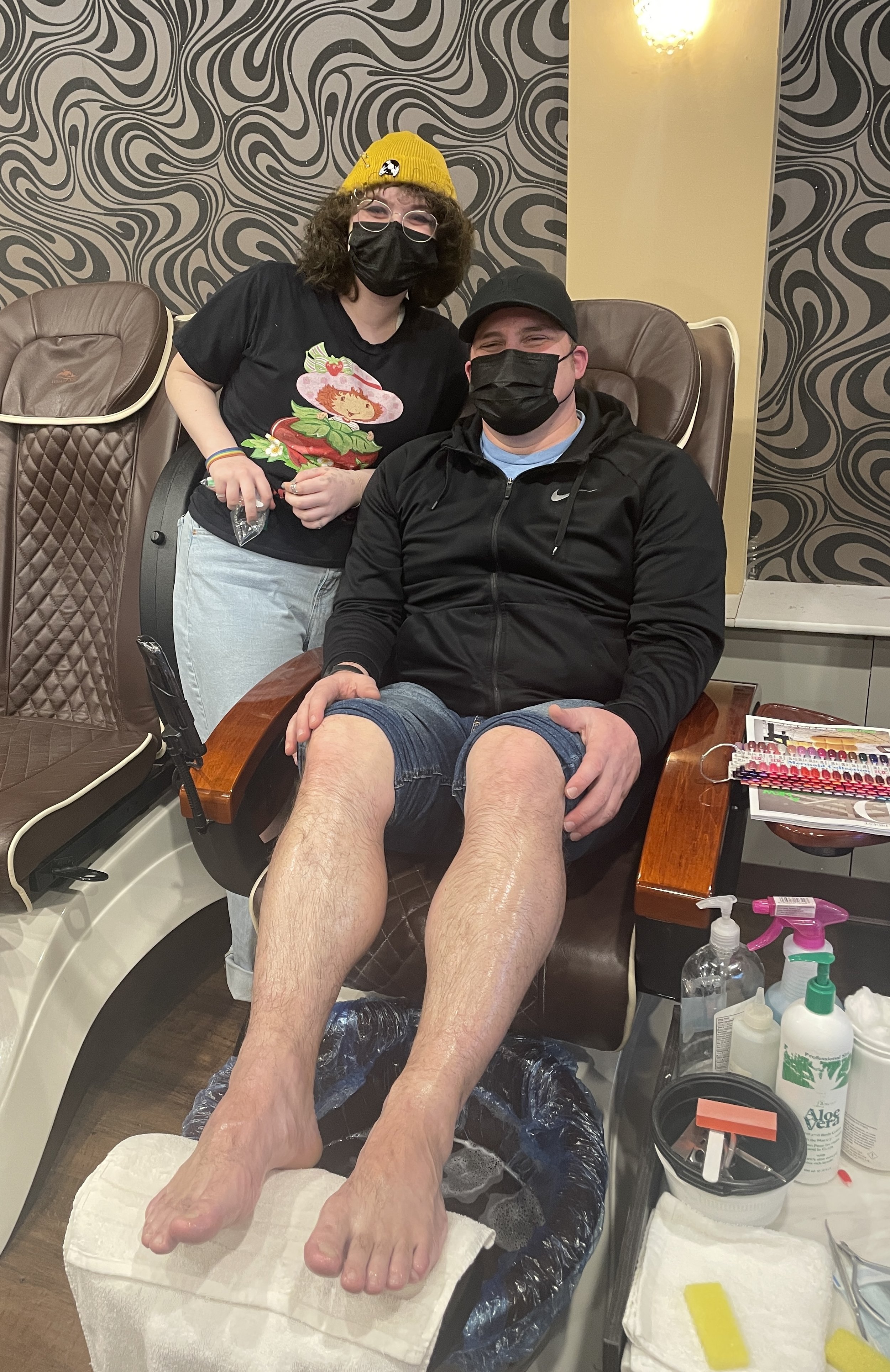3 Ways a Dad Can Calm His Daughter's Anxiety
Michelle Watson
Anxiety is a common thing. We all experience it in differing amounts depending on our comfort level in various situations, ranging from unsettledness before a dental procedure to the surge of emotion we feel when pulled over by a police officer as the siren blasts and lights flash.
As a mental health clinician, I’ve been addressing anxiety as a typical stressor in my clients' lives for over 27 years. Some people describe feeling anxious as being caught in a strangle hold that suffocates and doesn’t let go. Others say it’s like having a heavy weight on their chest. And when you add in the accompanying recurring intrusive thoughts with anticipation of future threat, coupled with physical symptoms such as a rapid heartbeat, sweating, nausea, dizziness, and trembling, you can see why this all-encompassing intense reality doesn’t have a quick fix.
Speaking from personal experience, I started dealing with debilitating anxiety around the age of 8 or 9 that resulted in avoiding sleepovers with friends, not going to summer camp because I didn’t want to be away from home, and fainting in a doctor’s office when told that I might need to be hospitalized if my fever didn’t break by morning. Yet back in the 60’s no one called it anxiety; instead, it was simply called “fear.” Sadly for me, I believed that my fear was a sin so I felt shame that I wasn’t allowing God to win my emotional battles.
I wish I knew then what I know now, which is that anxiety is a normal physiological response to stress. Anxiety is an alert system in our body that tells us we need to attend to something when that thing or a person doesn’t make us feel safe or secure.
I wish I knew then what I know now about the effectiveness of lowering anxiety through dietary changes, exercise, even medication.
And one other thing I wish I knew then that I know now is that resolution doesn’t come by just simply pushing through it, trying to ignore it, or even quoting Scripture verses. Yes, these proactive strategies can be helpful, but typically they aren’t effective until one’s body experiences calm and peace (a.k.a., return to homeostasis/equilibrium) before activating these resources. That’s where it helps to have someone in our corner with us when we’re overwhelmed.
A recent study in JAMA Pediatrics (Journal of American Medical Association) reported that between 2016 and 2020, there was a 29% increase in youth anxiety with eight million American kids noted as suffering from anxiety. I believe these numbers are low due to the kids who are unaccounted for in these reports. I would easily say we could double these numbers.
For you as a dad who wants to better understand your daughter, it could be beneficial to know (and perhaps share with her) that we have a national organization called the Anxiety and Depression Association of America, which reveals something about the current distressed state of our fellow citizens. They claim that:
Anxiety disorders are the most common mental health condition in our country.
Women are twice as likely to be affected by anxiety disorders than men.
Girls between the ages of 10 and 18 are more prone to anxiety disorders, most presumably because of hormonal changes.
I love this quote by Dr. Margo Maine where she says that “statistics are people with the tears wiped away.”
This leads me to ask: Is your daughter one of those people represented in these stats on anxiety?
If you’ve never talked to her about it, now is the time.
As a man of action who is ready to help calm your daughter’s anxiety, here’s your three-fold strategy for making that happen:
1. Listen.
This is where she talks and you listen. Even more, this is where you ask questions that allow her to process what’s going on inside her, things she may not even realize are weighing her down. This isn’t the time for lectures, criticism, or course correction. Instead, start with giving her a safe place to land by creating a compassionate space for her to vent and express.
[I’ve attached a set of questions here that you can use to open up a conversation on what’s making her feel anxious. These are from my latest book, Let’s Talk: Conversation Starters for Dads and Daughters and here’s a link to buy it to keep the dialogue with your daughter going strong -- https://amzn.to/3fDAhZd]
2. Hug.
Especially during stressful times, find a way to give your daughter hugs so she feels wrapped in your safe arms when she’s overwhelmed with life. And this isn’t just my opinion; it’s actually backed up by research, which states that when we give or receive a hug it releases oxytocin in our brains, an antidote to the effect of cortisol, the stress hormone.
3. Write.
Quick story: Today in a counseling session an adult woman read me a love note her dad wrote her when she was in college and it brought tears to her eyes as she read it. This story is all the more powerful because she lost him only a few months ago. Now his written words carry even more meaning. I watched the smile on her face shine brighter as she held her dads words in her hands. Take time today to put your love into written form (a text is great, but a note in your handwriting is even better) to let your daughter know you care, you’re praying for her, believing in her, and in her cheering section.
I believe that anxiety immediately decreases by at least fifty percent when someone steps into our distressed space with us.
Dad, you were made with broad shoulders and as you get close to your daughter during her intense times such that she feels your support (even if she’s extra emotional and extra reactive…especially to you), you give her a forever gift because she’ll always remember that you were in her emotional storm with her.






















